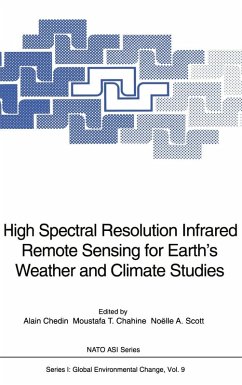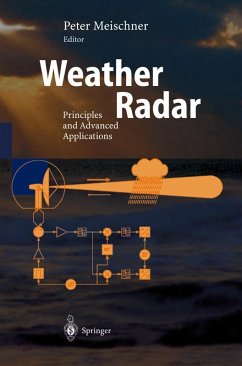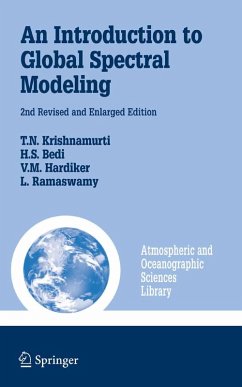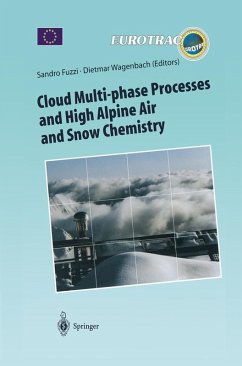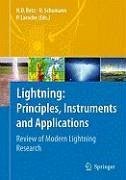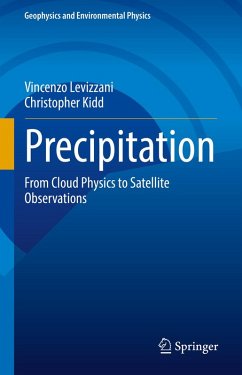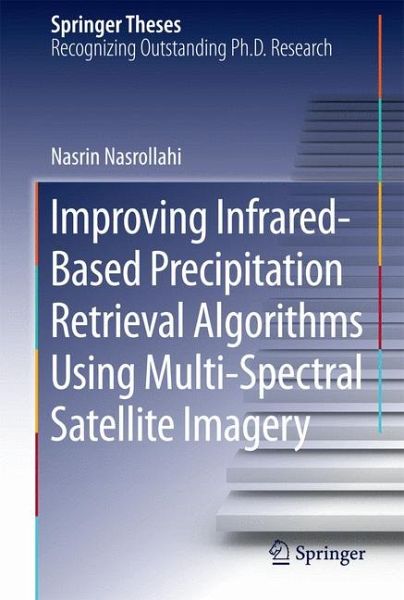
Improving Infrared-Based Precipitation Retrieval Algorithms Using Multi-Spectral Satellite Imagery (eBook, PDF)
Versandkostenfrei!
Sofort per Download lieferbar
72,95 €
inkl. MwSt.
Weitere Ausgaben:

PAYBACK Punkte
36 °P sammeln!
This thesis transforms satellite precipitation estimation through the integration of a multi-sensor, multi-channel approach to current precipitation estimation algorithms, and provides more accurate readings of precipitation data from space.Using satellite data to estimate precipitation from space overcomes the limitation of ground-based observations in terms of availability over remote areas and oceans as well as spatial coverage. However, the accuracy of satellite-based estimates still need to be improved.The approach introduced in this thesis takes advantage of the recent NASA satellites in...
This thesis transforms satellite precipitation estimation through the integration of a multi-sensor, multi-channel approach to current precipitation estimation algorithms, and provides more accurate readings of precipitation data from space.
Using satellite data to estimate precipitation from space overcomes the limitation of ground-based observations in terms of availability over remote areas and oceans as well as spatial coverage. However, the accuracy of satellite-based estimates still need to be improved.
The approach introduced in this thesis takes advantage of the recent NASA satellites in observing clouds and precipitation. In addition, machine-learning techniques are also employed to make the best use of remotely-sensed "big data." The results provide a significant improvement in detecting non-precipitating areas and reducing false identification of precipitation.
Using satellite data to estimate precipitation from space overcomes the limitation of ground-based observations in terms of availability over remote areas and oceans as well as spatial coverage. However, the accuracy of satellite-based estimates still need to be improved.
The approach introduced in this thesis takes advantage of the recent NASA satellites in observing clouds and precipitation. In addition, machine-learning techniques are also employed to make the best use of remotely-sensed "big data." The results provide a significant improvement in detecting non-precipitating areas and reducing false identification of precipitation.
Dieser Download kann aus rechtlichen Gründen nur mit Rechnungsadresse in A, B, BG, CY, CZ, D, DK, EW, E, FIN, F, GR, HR, H, IRL, I, LT, L, LR, M, NL, PL, P, R, S, SLO, SK ausgeliefert werden.




